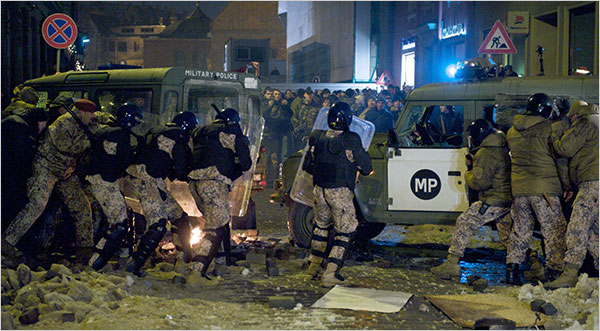If you want a sense of just what a hole the right finds itself in these days, consider the recent press release from the anti-abortion American Life League headed "KRISPY KREME CELEBRATES OBAMA WITH PRO-ABORTION DOUGHNUTS." It goes on to say:
The next time you stare down a conveyor belt of slow-moving, hot, sugary glazed donuts at your local Krispy Kreme you just might be supporting President-elect Barack Obama's radical support for abortion on demand… The doughnut giant released the following statement yesterday:
Krispy Kreme Doughnuts, Inc. (NYSE: KKD) is honoring American's sense of pride and freedom of choice on Inauguration Day, by offering a free doughnut of choice to every customer on this historic day, Jan. 20. By doing so, participating Krispy Kreme stores nationwide are making an oath to tasty goodies — just another reminder of how oh-so-sweet "free" can be.
…The unfortunate reality of a post Roe v. Wade America is that "choice" is synonymous with abortion access and celebration of 'freedom of choice' is a tacit endorsement of abortion rights on demand…. Celebrating [Obama's] inauguration with "Freedom of Choice" doughnuts – only two days before the anniversary of the Supreme Court decision to decriminalize abortion – is not only extremely tacky, it's disrespectful and insensitive and makes a mockery of a national tragedy.
A number of anti-abortion bloggers have joined the ALL in urging readers to make their indignation known to the company, while others have confined themselves to suggesting that the promotion was at best clueless. "To a majority of Americans," the commenter on one blog wrote, "the words ['freedom of choice'] do not connote liberty, or 'tasty goodies' or patriotism at all. These words are synonymous with the painful tragedy of abortion."
And conservatives wonder why their movement is in trouble?
Read the rest of this entry »


